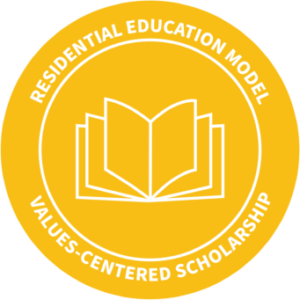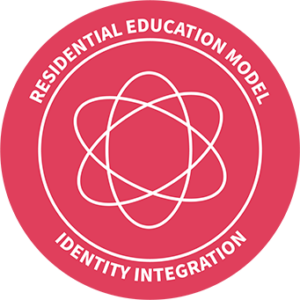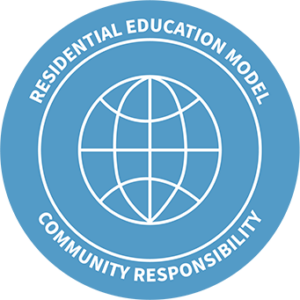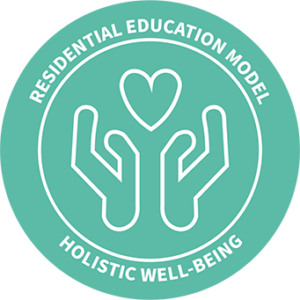WashU’s Residential Housing is located in the cultural hub of Saint Louis. While living with us, we want you to experience first hand what makes WashU a home.
We have a continued investment in your experience that can be seen through the spirit and intentionality of our Residential Communities and our commitment to knowing each of you by name and story. We have developed spaces and programs that foster an inclusive and diverse community where you will have the opportunity to thrive, grow and learn, and where you can find your special place in community with others. Not only have we created the spaces, we have integrated professional staff, a residential curriculum, student staff and faculty models that support your needs as a student. You are a part of the Residential Life family!!
How do we create an environment where living, learning and leading are a priority?
Residential education curriculum
Residential Life seeks to provide a safe environment that encourages learning and personal growth that empowers and challenges our residents. We utilize a residential curriculum that is based on institutional context, including our institutional values and data on resident needs; incorporates student development theory; and helps promote learning outside of the classroom and in our residential spaces.
What is a residential curriculum?
A residential curriculum is a student engagement model that utilizes key factors to provide necessary education and experiences to residents. A residential curriculum ensures that our programming in residential communities: incorporates relevant topics for our residents; is guided by education as a priority derived from our institution’s mission; is grounded in student development and learning theories and restorative justice practices; and is sequential and targeted for varying resident populations for a well-rounded experience.
Our residential curriculum is called the Residential Education Model (REM). It activates the educational mission of the Residential Life at WashU focusing on learning inside and outside of our communities. We have the opportunity to connect with residents through intentional conversations, facilitated discussions, and by leveraging the experiences students encounter in our communities. We are guided by our University Mission Statement: Discover and Disseminate knowledge.
Residential Education Model learning goals
To achieve our educational priority of helping students develop intellectually, grow personally and become responsible community members, the REM has four distinct learning goals:




How do we support our residential students’ development?
For each learning goal, we offer a customized engagement experience that meets students where they are developmentally. For example, our Community Responsibility learning goal works with students to identify their individual needs as it relates to shared living spaces. While understanding their placement as a member of a larger community, we help students distinguish between the individual and collective benefits of being invested in a community. Using this knowledge to create community on campus, our students then consciously evaluate their responsibility in their community and formulate ideas on how they plan to contribute to their local and global communities after graduation.
To support the learning and development of students as it relates to our learning goals, we implement strategies that use different instructional methods to accommodate the many different needs of our students.
Implementation of learning goals
We offer active programs, which are events facilitated by either paraprofessional (RAs) or professional staff that bring students together to learn in one space. Our live-in faculty and affiliated faculty also facilitate active programs. Live-in faculty also directly support our community-wide events, which include recurring monthly events open to everyone in a residential community and serve as an opportunity to foster a sense of belonging to the specific community in which a student lives.
Monthly newsletters, bulletin boards, and social media engagement serve as our common platforms to deliver passive programs. RAs also facilitate intentional conversations, which is an opportunity to have one-on-one conversations with each of their residents on the South Forty each semester. RAs on the Northside facilitate apartment conversations in lieu of one-on-one conversations given the community set-up and student demographic.
As you continue to get to know us here at Residential Life, we encourage you to explore our housing options and discover ways to get involved on campus within our office.